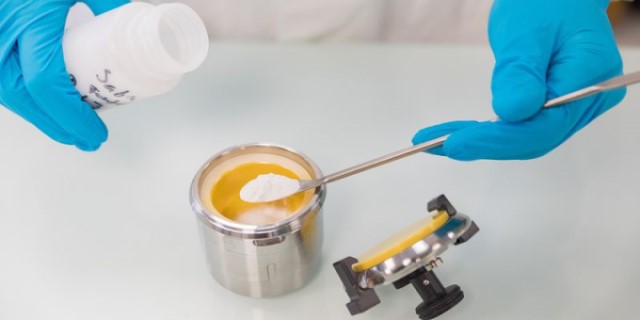Tuning ceramic surface to minimize the ionic resistance at the interface between PEO- and LATP-based ceramic electrolyte.
Léa Mangani, Didier Devaux, Anass Benayad , Christian Jordy, Renaud Bouchet. ACS Applied Materials & Interfaces, 2024, 16 (34), pp.45713-45723.



